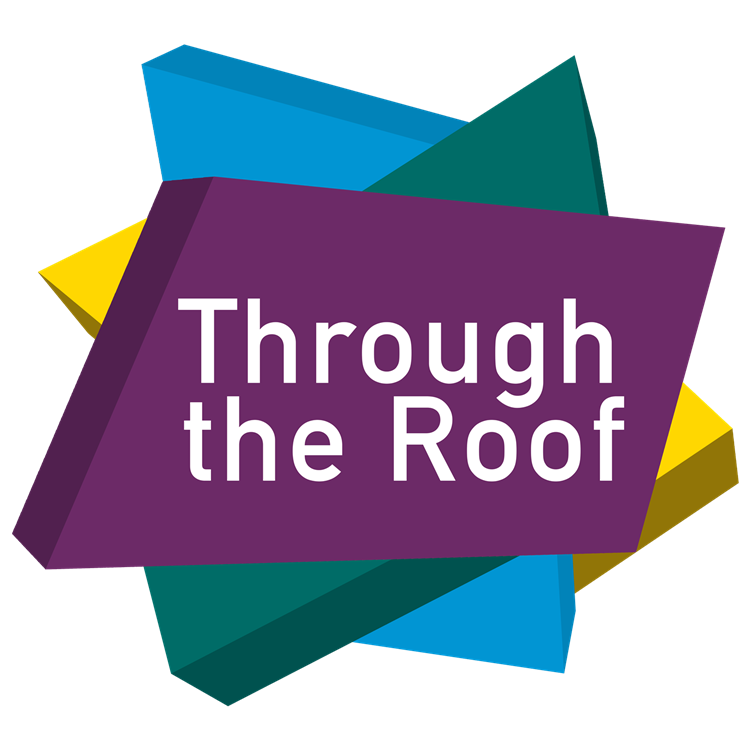What is Wheels for the World?
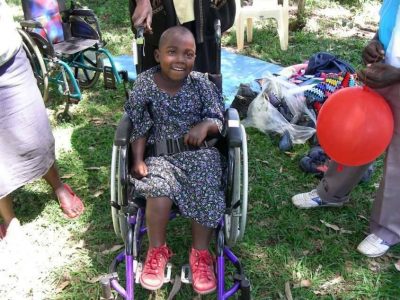
‘Today marks my most happiest moment of my life to see my grandmother Susan has acquired a wheelchair through the Wheel for the World initiative’, Phillip, from Kirinyaga, Kenya.
Philip’s words are a typical response of joy and thankfulness for the hope and freedom that a wheelchair can bring. However, Susan is only 1 of 80 million people that need a wheelchair and can’t afford one, as reported by The World Health Organisation.
Our Wheels for the World programme restores and distributes refurbished wheelchairs to disabled people in developing countries who can’t afford one. This gives increased independence and demonstrates the love of God in a practical way.
We take donated wheelchairs, including old NHS wheelchairs, to our workshop where volunteers use their technical skills to refurbish the chairs. The hub of operations is a warehouse unit in Aldershot where unwanted wheelchairs are received and restored. Then, before an international mission to a developing nation, they are loaded into containers for shipping.
The container of wheelchairs and other mobility aids is sent in advance of the mission team arrival. A typical distribution usually lasts 8 – 12 days with a team of 6 - 10 people staying in basic accommodation.
Our therapists fit all our chairs most carefully to ensure safety and comfort, and all recipients and family members are instructed in the correct use and maintenance of their chair.
Wheels for the World meets the practical needs of the disabled person with a wheelchair and, as we are a Christian charity, we offer recipients a Bible in their own language and local people share the Christian message. Wheelchairs are given according to need regardless of whether the recipient has a faith or not. Team members speak in local churches and community halls, spreading the message of including disabled people and training church leaders.
All of Wheels for the World's work is made possible through the generous support of donors and fundraisers. If you'd like to sponsor a wheelchair, you can download a form by following this link.
An example of how Wheels works
When Peter’s father died after a period of increasing frailty, it was a distressing time for the whole family. Peter found that the NHS did not want him to return his father’s wheelchair as it was too worn to be reused. Peter donated the wheelchair to Through the Roof, and had the satisfaction of knowing that his donation would make an immense difference to someone on the other side of the world.
Chris had a difficult childhood and got in trouble with the law. He trained to repair wheelchairs and gained some useful skills that would help him to find a proper career. Chris refurbished the wheelchair donated by Peter for Through the Roof, and made it as good as new once again. Chris was able to feel a sense of self-worth and dignity, and know that he was helping others with his skills.
Miriam contracted polio as a child which left her with paralysis in her legs. Living in a community where no physiotherapy or rehabilitation services are available, she spent most of her time in bed, shut away from society. Occasionally she would venture out to see the world beyond the walls of her home, but could only move by dragging herself along the ground. A team from TTR arrived in Uganda to distribute wheelchairs. Miriam was given the wheelchair that had been donated by Peter and refurbished by Chris. Now she can help her mother selling produce on their market stall, and can go out independently and make friends.
The Sound of Many Waters (Ros' Blog)

I took my daughter swimming after work yesterday (Basingstoke Aquadrome if anyone’s interested – fantastic place: height-adjustable changing bed, ceiling track and hoist, and a chair that wheels down a slope into the water for ease of getting in and out of the pool). Because there are so many different pools, flumes, tipping buckets and waterspouts there was a constant deafening roar of the sound of water – not something that all autistic people would cope with, but it suits my daughter, whose motto in life is the noisier the better.
This started me thinking about the places in the Bible (there are quite a lot of them) where the sound of many waters is mentioned. Here are just a few of them...
Sometimes the sound is a symbol of power, as in Psalm 93.4 which says,
“More than the sounds of many waters,
Than the mighty breakers of the sea,
The Lord on high is mighty.”
In this passage, the sound of many waters symbolises the things and (in this specific context) the nations that oppose God’s people, and affirms that no matter how loudly they roar, God is mightier. To someone grappling with disability and all the challenges life presents, it’s good to know that however loud the roar from the things that come against us, God is mightier and can overcome them.
There is a similar thought in Isaiah 17.13:
“The nations rumble on like the rumbling of many waters,
But He will rebuke them and they will flee far away.”
Some friends recently asked us to pray as they went to tribunal to contest a clearly unjust PIP ruling. I haven’t yet heard the outcome, but I do know that the anxiety caused by having your disability dismissed and all your benefits stopped must be liked the thundering of a torrent of water. How good to know that God isn’t intimidated by the roar of opposition – His roar is louder, and He promises to provide for our needs.
But the sound of many waters in the Bible isn’t always the noise of the enemy roaring at us. Listen to Ezekiel 43.2:
“And behold, the glory of the God of Israel was coming from the way of the east. And His voice was like the sound of many waters; and the earth shone with His glory.”
I’ve been fortunate enough in my life to visit two of the world’s beautiful waterfalls – Swallow Falls at Betws-y-Coed, which breaks in scores of seething white rivulets over the rocks as the river makes its way down the Conwy Valley; and Staubbach Falls in Lauterbrünnen, Switzerland, where the river simply drops off a cliff face and dashes onto the rocks below. I have scrambled up the rocks there and stood on a ledge behind the falls, with a curtain of water crashing down in front of me, its sound the voice of nature praising its Creator.
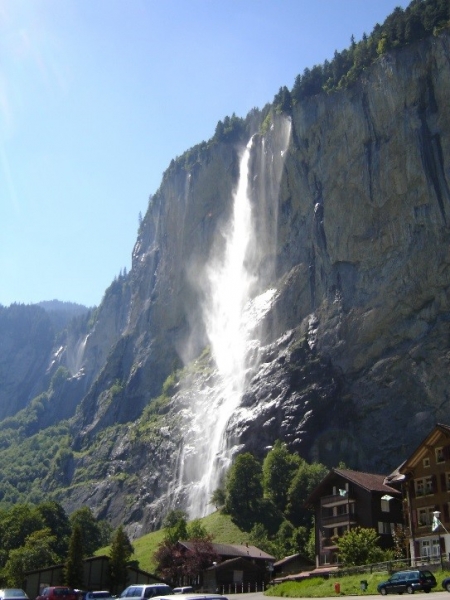
I love the way the Bible uses this imagery to represent the glory of God. Here again the sound is deafening, but it’s not a threatening or intimidating sound, but a glorious one – the voice of God Himself.
The first time Ezekiel had a vision of God, he was beside the river Chebar, and if he had heard the sound of many waters, he could have dismissed it as the noise of the river thundering along in its bed. But the time he is describing here, he was not by the river but by the temple, and the sound of water which he heard was the sound of the glory and the voice of God. Maybe next time you run a bath or shower or water your garden, close your eyes, imagine the sound multiplied thousands of times and let it remind you of the glory of the God who loves you.
This same imagery is used in Revelation 1.15, where John encounters the risen, glorified Lord Jesus:
“His feet were like burnished bronze, when it has been made to glow in a furnace, and His voice was like the sound of many waters.”
John was Jesus’ closest earthly friend; he took care of Jesus’ mother for the rest of her life after Jesus’ death. How often he must have closed his eyes and recalled the voice of his dear Friend and Lord. And yet when he encountered Him in all His risen, ascended glory, His voice was not that familiar, homely Aramaic with the Nazareth burr; it was the sound of many waters. This is a symbol of the greatness and glory of the God who has taken us under His wing.
And finally there are two more passages in Revelation (Revelation 14.2 and 19.6) which refer to the sound of many waters – and this time it isn’t the voice of God, but of the great congregation of worshippers in heaven:
“And I heard a voice from heaven, like the sound of many waters and like the sound of loud thunder, and the voice which I heard was like the sound of harpists playing on their harps.”
“Then I heard something like the voice of a great multitude and like the sound of many waters and like the sound of mighty peals of thunder, saying, ‘Hallelujah! For the Lord our God, the Almighty, reigns.’”
Matthew Henry writes of this passage, “The concert of heavenly music. The chorus was large and loud, as the voice of many waters and of mighty thunderings. God is fearful in praises. There is no discord in heaven; the morning stars sing together; no jarring string, nor key untuned, but pure and perfect melody.”
And for all of us, whether life is full of joy and laughter and the love of family and friends; or whether it’s marked by pain and impairment and loneliness; or, as is more likely, a mixture of both, this is the glorious truth: something far, far better awaits us – an eternity that centres around Jesus, His greatness and His kingship over all. As we add our little drops of praise and worship to the thundering torrent that is roaring in heaven, we are giving a prophetic sign of the day that we will be part of that mighty chorus of praise to the One who has loved us and redeemed us from our sins by His blood. On a day like today when the sound of heavy rain drifts in through the office window, that hope transforms a drab, grey day into a foretaste of the sounds that await us for all eternity.
Non Styling
Dyslexia friendly
Large version
Standard layout
Churches Inc in Mozambique 2017
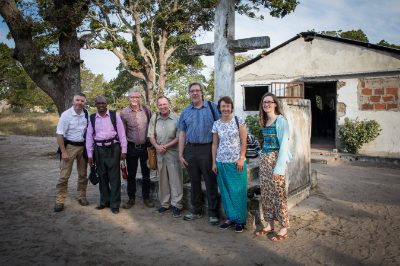
A Churches Inc team were in Maputo Mozambique from the 30th July to the 9th August, working with local churches and church leaders to build relationships, train, and encourage inclusion of disabled people. They sent back a series of seven fantastic videoblogs, and you can find them all below.
New Stewards Cards: Now Available
A new and updated version of our stewards cards is now available. The cards are the same size they used to be (roughly a credit card to allow them to easily slip into a pocket or wallet), but are folded so the text is much more readable. The information on best practice has also been revised.
The cards are designed as an easy reference for your church or event welcome team and stewards. They're a quick guide to making sure that your meetings are welcoming and inclusive to disabled people. Take a look on our shop page by following this link, or get in touch to find out more.
'Love, Acceptance, and Oneness' - the Summer 2017 Vital Link
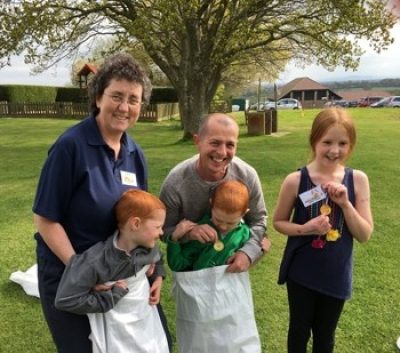
The Summer 2017 Vital Link Newsletter is now available for download - this issue features reports from Dalesdown, the Center Parcs holiday, details of upcoming International Missions, new groups and resources, plus a Wheelchair Sponsorship form. Take a look!
- Follow this link to download the Summer 2017 Vital Link (including a Wheelchair Sponsorship form) - right-click and select 'save' to save the file for later
Or click on the cover image below to read the Vital Link online using Joomag - you can zoom in and swap between pages much more easily that by just using a PDF reader.
Summer 2017 Vital Link and Sponsor Form
Learning From History – The Church Can Lead The Way (Ros' Blog)

Once upon a time in Britain, disabled people lived with their families, in their communities, and were as much accepted in their homes and villages as everybody else. Those who could, helped with the family businesses – often farming smallholdings, selling produce or engaging in cottage industries such as seamstressing. They worshipped in church, joined in harvest and other celebrations and were just generally part of the scene in exactly the same way as any other citizen. Sure, there may have been some who mocked or abused them, but plenty of others who sprang to their defence.
Then came the industrial revolution. Increasingly people began to move to urban areas and cities, and to be employed in mechanised factories. Disabled people were excluded from these workplaces and a shift of attitude began to take place. Gradually people came to be valued to the extent of their economic productivity, and those who did not make an economic contribution were increasingly despised.
A distinction was made between the 'undeserving poor' – those regarded as feckless or promiscuous, addicts and alcoholics, and their children, and the 'deserving poor' – those who were not responsible for their own misfortunes, and whom the state had a duty to support. The former were left to fend for themselves however they could.
Meanwhile the 'deserving poor' were the responsibility of the parish, which had a duty to care for them, and so they were at first herded into work houses. In these institutions food was sparse and simple, and contact with family was limited. Inmates’ clothes were taken from them and they were instead issued with uniforms. So began the institutionalisation of disabled people, and with it, a devaluing of their worth as human beings. No distinction was made between physical and learning disabilities – cerebral palsy was often referred to as 'congenital idiocy'. And inevitably, with this dehumanising came unspeakable physical, mental, emotional and sexual abuse.
A change to all this began to take place from the second half of the 20th century. The disability rights movement gathered momentum and gave disabled people a voice which has increasingly been heard and heeded; but sadly in the 21st century, fuelled by public figures and the media, it has again become fashionable to despise those who are unable to work or who need to supplement their incomes with disability benefits, and this has given rise to a 213% increase in reported disability hate crime between 2010 and 2015, with the Crown Prosecution Service stating that the unreported figure is likely to be far higher.
So how do we as churches respond to the needs of disabled people both to be supported and to be enabled to make their contribution to our society? Getting informed is a good starting place – I have frequent conversations with people who think I am manipulating statistics or exaggerating when I explain to them what disabled people face in our country today. As Christians we can put the facts before people and invite them to see what is happening in our communities.
The government’s own Equality and Human Rights Commission has just published a report, 'Being Disabled in Britain – a journey less equal' which is a real eye-opener on the many ways in which disabled people are disadvantaged and held back in modern Britain. Follow this link to download the report.
A year ago, the UN published its findings after an enquiry into the treatment of disabled people in the UK – an inquiry which it had launched after receiving multiple requests from both individuals and disability organisations concerned that disabled people’s human rights were being eroded. The UN inquiry found that government policy towards disabled people is resulting in grave and systematic violations of their rights under the international conventions to which the UK is a signatory. You can download the full report by following this link.
And then, having identified the problem, let’s respond. God makes no distinction between the 'deserving' and the 'undeserving' but lavishes His grace on everyone (Romans 5.7-8). We know that disabled people mattered very much to Jesus during His earthly ministry – as Joni Eareckson Tada put it, “Our Saviour chose to flash His credentials as Messiah through ministry to disabled people.” Proverbs 31. 8-9 gives us a mandate to 'Speak up for those who cannot speak for themselves, for the rights of all who are destitute. Speak up and judge fairly; defend the rights of the poor and needy.'
But beyond informing people and speaking up, we can model the love of God for others to see and emulate, making our churches and our homes into welcoming places, where disabled people can belong and feel safe. Did you know that you’re three times more likely to experience physical violence in the workplace if you have a disability? Imagine the relief, then, of being part of a church community where you could feel absolutely safe, accepted, loved and valued.
We can learn from disabled people, so that all of us, abled and disabled alike, can use our gifting to teach and disciple, using the skills and experiences God has given us to build up others on their Christian journey. In this way, the whole body will benefit and be built up by what every joint in it supplies, until we all reflect “the measure of the stature of the fulness of Christ”. As Amos Yong once said, “If people with intellectual disabilities represent the foolishness of this world, what hinders our viewing them as embodying the wisdom of God?”
So, in the light of all this, I am asking myself, what can my church do differently? How can we ensure that disabled people are given the same opportunities as everyone else to grow in faith, form deep friendships in the church and contribute the wisdom and insight God has given to share with us all?
